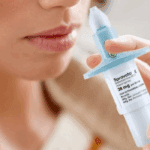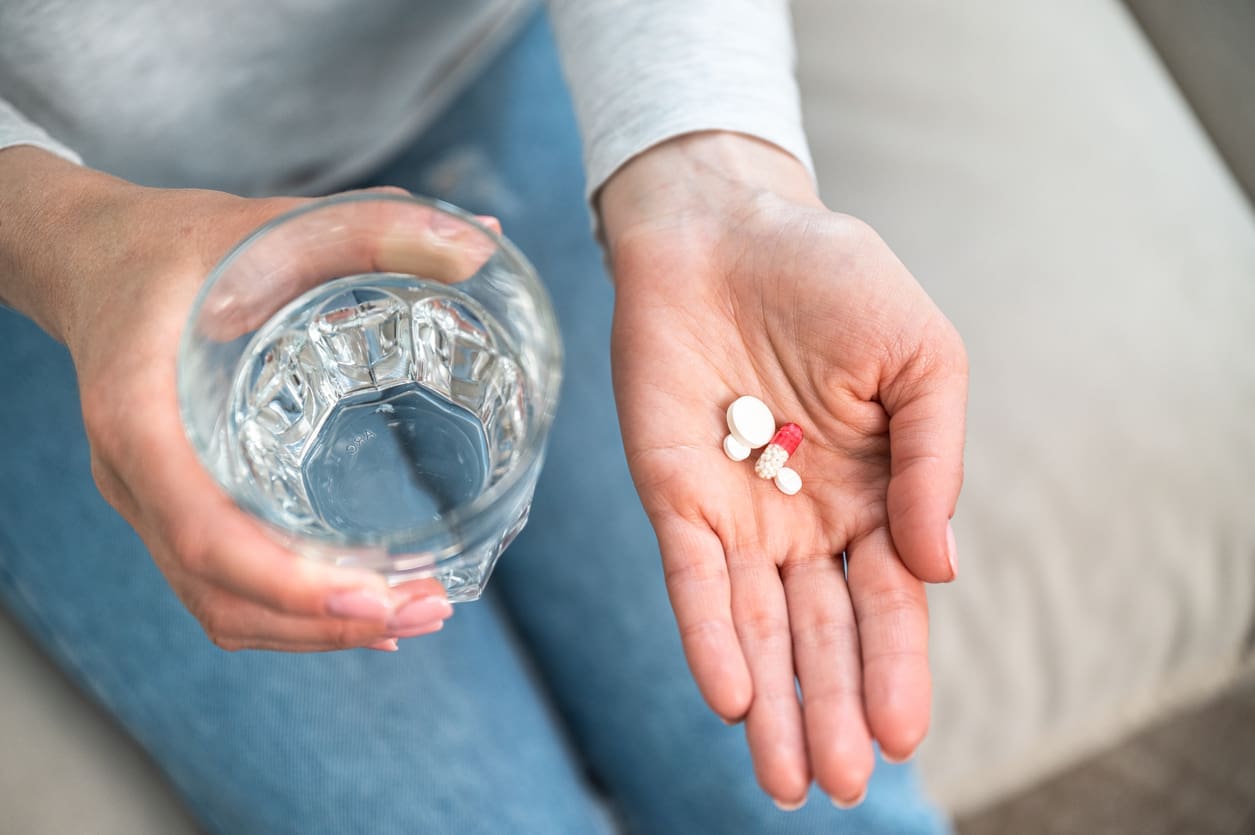Over the years, countless patients have turned to antidepressants as a definitive answer to their complex psychological challenges. In recent years, however, researchers have continued to question conventional wisdom by studying the paradoxical effects of antidepressants in case studies and research initiatives worldwide.
In pursuit of safer and more sustainable treatment alternatives in the ongoing fight against Depression, unlocking a wider understanding of the antidepressant paradoxical effect will prove essential in creating lasting and effective treatments for patients around the globe.
Promise and Paradox: The Paradoxical Effect of Antidepressants
Antidepressants are among the most widely prescribed medications in psychiatry, offered as first-line treatments for major depressive disorder (MDD), clinical anxiety and panic disorder. With their ongoing usage, millions of patients report life-changing benefits from such medications, including greater emotional stability, restored energy, and relief from overwhelming sadness. For those struggling with treatment-resistant Depression (TRD), newer medications—including those with ketamine derivatives—have also shown promise by providing relief in cases where conventional options failed.
Yet antidepressants are not universally effective. Amidst these success stories, many patients have been reported to experience a disheartening alternate reality in which the paradoxical effect of antidepressants causes their conditions to worsen after beginning their course of treatment: their Depression deepens, their anxiety intensifies, and in worst case scenarios, suicidal thinking emerges.
This unexpected reaction has left both patients and clinicians navigating a delicate gray area between the stark polarities of help and harm, further underscoring the need for vigilant monitoring and alternative treatment pathways. Such challenging narratives concerning both the efficacy and the risks associated with antidepressants have begun to percolate into the field of mainstream clinical research; clinicians are focusing more on antidepressant long term risks, which are increasingly becoming a central concern in today’s treatment landscape.
How the Paradoxical Effect of Antidepressants Manifests in Patients
Historically speaking, antidepressants (or ADs) have been lauded for their life-changing potential in patients struggling to alleviate the burdens of both MDD and TRD in their daily lives. The paradoxical effect refers to a counterintuitive outcome in which antidepressants exacerbate rather than relieve symptoms. Patients may experience heightened agitation or anxiety, insomnia, irritability, or intrusive thoughts of self-harm. These reactions often appear within the first few months of treatment or during dose adjustments.
Importantly, an antidepressant paradoxical effect or reaction should be distinguished from typical side effects such as nausea, dizziness, or weight gain. While those side effects can be unpleasant, paradoxical worsening directly undermines the therapeutic intent of the drug, sometimes creating dangerous situations for patients who are already vulnerable.
Historical Evidence: From TCAs to SSRIs
Paradoxical reactions to antidepressants have been documented for decades. A landmark 1968 double-blind and placebo-controlled trial found that imipramine, a tricyclic antidepressant (TCA), actually increased depressive symptoms in patients whose baseline scores were initially the lowest.
Later studies of selective serotonin reuptake inhibitors (SSRIs) echoed these findings. In one trial of fluvoxamine for panic disorder, about 9% of participants with no prior history of Depression developed the onset of depressive symptoms after treatment began. This suggested that even individuals without a history of Depression could experience paradoxical effects as a result of medication. The subsets of patients experiencing the paradoxical effect of antidepressants in both trials felt their depressive symptoms abate after discontinuing both SSRIs and TCAs.
A larger 2007 double-blind study of fluoxetine in patients with chronic Depression revealed that nearly one third (30.4%) experienced early worsening of symptoms, defined as a 5-point increase on the Hamilton Depression Rating Scale (HAM-D). The study emphasized that paradoxical effects are not just isolated anecdotes but designated as “common” and thus represent a measurable risk for a significant portion of patients.
Why Do Antidepressants Sometimes Make Depression Worse?
An episode of The Carlat Psychiatry Podcast proposes several explanations that attest to why antidepressants can sometimes exacerbate Depression:
- Developmental Stage: Children, adolescents, and young adults are more vulnerable in general, perhaps due to the fact that a person’s brain does not fully mature until about age 25.
- Comorbidities: Antidepressants may cause someone with bipolar disorder to enter a “mixed state,” which consists of both depressive and manic symptoms, or may worsen a mixed state that someone is already experiencing (as in a case of Depression with mixed features). Patients with borderline personality disorder may also experience exacerbated symptoms, particularly with TCAs worsening expressions of Depression or aggression.
- Sleep Disruption: SSRI medications cause patients to sleep less deeply, leading many to report lower levels of energy and increased levels of fatigue—depressive symptoms they may have already been struggling with before medicated treatment.
- Medication Sensitivity: Unfortunately, some people may simply be genetically more sensitive to side effects and/or the paradoxical effects of antidepressants.
A 2007 study also reported that hormonal influences may play a role in exacerbating Depression, finding that premenopausal women with premenstrual symptom exacerbation were particularly prone to worsening symptoms during antidepressant trials.
The Suicide Risk Debate
The most concerning manifestation of the paradoxical effect is the risk of increasing suicidal thinking or behavior, particularly among children and adolescents. This issue represents one of the most profoundly controversial debates in psychiatry.
Amid initial suspicion concerning antidepressant drugs, a seminal combined analysis was performed that included 24 placebo-controlled trials of antidepressants for children and adolescents. Among the 4,400 participants, the average risk of suicidality was found to be double (4%) among individuals taking antidepressants compared to those taking placebo (2%).
In 2004, The FDA issued a black box warning for antidepressants in patients under 18, later extending it to young adults up to age 25. This warning emphasized the need for close monitoring during the first weeks of treatment. At the same time, experts at The American Academy of Child and Adolescent Psychiatry (AACAP) caution that untreated Depression itself carries a significant risk of suicide, meaning careful monitoring is essential rather than abandoning pharmacological treatment altogether.
Managing the Risks of the Antidepressant Paradoxical Effect in Practice
When monitoring for a potentially paradoxical reaction to a prescribed medication, clinicians describe early worsening of mood or suicidality as a “red flag” that demands immediate action. In practice, risk mitigation strategies for patients include:
- Close Monitoring: Weekly follow-ups in the first month allow providers to detect and address worsening symptoms promptly.
- Careful Dosing: Starting with the lowest effective dose and titrating slowly can help reduce destabilization.
- Patient and Family Education: Informing patients and caregivers about warning signs empowers early communal intervention.
- Exploring Alternatives: For patients who cannot tolerate medications, evidence-based psychotherapy approaches such as cognitive behavioral therapy (CBT) may be equally or more effective. Lifestyle interventions—such as exercise, sleep hygiene, and mindfulness-based stress reduction—are increasingly recognized as valuable adjuncts to medication.
TMS: A Non-Pharmacological Pathway
While not every individual experiences the paradoxical effect of antidepressants, research proves that the likelihood of these adverse consequences is not insignificant. For patients who struggle with sensitive mental health concerns, the added risk of unnecessary complications may outweigh the potential benefits of such medications.
A prevalent and promising alternative for patients destabilized by antidepressants is transcranial magnetic stimulation (TMS). TMS delivers targeted magnetic pulses to brain regions involved in mood regulation. Unlike medications, TMS does not systemically alter neurotransmitters, which reduces the likelihood of paradoxical worsening.
Research supports TMS’s safety and effectiveness for MDD and TRD, with a more favorable side-effect profile than antidepressants. Sessions are typically outpatient, non-invasive, and require no anesthesia. For patients who have struggled with paradoxical responses or treatment resistance, TMS provides a pathway forward with sustainable results, and can in some cases even form a synergetic effect with antidepressants.
Finding a Path Around the Paradox with Mid City TMS
While it remains true that antidepressants can provide immense relief, for some, they paradoxically worsen the very symptoms they are meant to treat. The paradoxical effect of antidepressants reminds us that psychiatric treatment is not a one-size-fits-all solution to complex mental health challenges. Careful monitoring, thoughtful prescribing, and patient education are crucial to minimizing risks associated with holistic treatment plans.
For those who have found themselves experiencing adverse reactions to their medications, alternatives like TMS provide new avenues of hope. At Mid City TMS, we have over 30 years of experience helping patients navigate Depression, including complex cases shaped by paradoxical reactions to medication. If you feel your antidepressant is not helping—or is making you worse—don’t settle for ineffective or harmful solutions. Contact us today to learn more about the transformative potential of TMS treatment.
Sources
- The Carlat Psychiatry Podcast. When Depression Gets Worse on an Antidepressant. The Carlat Report. https://www.thecarlatreport.com/blogs/2-the-carlat-psychiatry-podcast/post/3381-when-depression-gets-worse-on-an-antidepressant
- U.S. Food & Drug Administration (FDA). Suicidality in Children and Adolescents Being Treated With Antidepressant Medications. FDA.gov. https://www.fda.gov/drugs/postmarket-drug-safety-information-patients-and-providers/suicidality-children-and-adolescents-being-treated-antidepressant-medications
- Rihmer, Z., & Gonda, X. Antidepressant Worsening of Depression and Suicidality: A Review of Neurobiological and Pharmacological Mechanisms. BJPsych Open. https://journals.sagepub.com/doi/full/10.1177/2045125320970325#bibr27-2045125320970325
- Teicher, M. H., Glod, C. A., & Cole, J. O. Emergence of intense suicidal preoccupation during fluoxetine treatment. The American Journal of Psychiatry. https://pubmed.ncbi.nlm.nih.gov/8256637/
- Olfson, M., Marcus, S. C., Weissman, M. M., & Jensen, P. S. National trends in the use of psychotropic medications by children. Archives of Pediatrics & Adolescent Medicine. https://pubmed.ncbi.nlm.nih.gov/17284130/
- Bridge, J. A., Iyengar, S., Salary, C. B., Barbe, R. P., Birmaher, B., Pincus, H. A., Ren, L., & Brent, D. A. Clinical response and risk for reported suicidal ideation and suicide attempts in pediatric antidepressant treatment: a meta-analysis of randomized controlled trials. JAMA. https://pubmed.ncbi.nlm.nih.gov/17592923/
- American Academy of Child and Adolescent Psychiatry (AACAP). Do Antidepressants Increase the Risk of Suicide in Children and Adolescents? AACAP.org. https://www.aacap.org/aacap/medical_students_and_residents/mentorship_matters/developmentor/Do_Antidepressants_Increase_the_Risk_of_Suicide_in_Children_and_Adolescents.aspx



